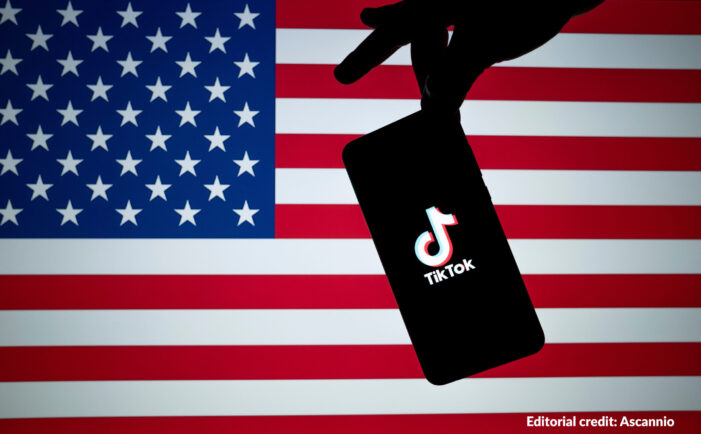Listen to a special podcast
Audio PlayerSAN FRANCISCO, Calif — A debate rages over the possible ban of TikTok, a hugely popular app owned by the Beijing, China-based company Byte Dance. Over 150 million users in the US regularly access the app for more than 90 minutes a day, watching entertaining videos featuring a variety of genres.
TikTok is increasingly becoming a source of news for people under 30. A Pew Research Center study released last fall concluded that 26 percent of TikTok user between the ages of 18-29 regularly get their news from TikTok. Conversely, the number of people using Facebook and Twitter to get their news has been steadily declining.
Amid the merriment of dancing cats and lip-syncing grandmas lies concerns about privacy, and China’s ability to collect user data via TikTok. There are also concerns that the app promotes the ideology of the Communist Party of China.
An April 14 Ethnic Media Services news briefing featured Sen. Mark Warner, D-Virginia, chair of the Senate Intelligence Committee. Warner discussed his RESTRICT bill, which could potentially ban TikTok in the U.S.
Warner was joined by John Yang, President and Executive Director, Asian Americans Advancing Justice/AAJC and Kate Ruane, PEN America’s Director of US Free Expression Programs. Both organizations oppose a blanket ban on TikTok.
KEY REMARKS:
Sen. Mark Warner:
I strongly believe in the positive power of technology. I also first to acknowledge that there’s a lot of creative things on TikTok and on top of the creative things, there are a whole now group of people who have made that make their income off of that and I think that is a good thing.
And while we’re going to talk about TikTok, I know some of my critics have said, well, you know, shouldn’t you be concerned about not just TikTok, but Facebook and YouTube. But there is a difference with TikTok controlled by Byte Dance. Byte Dance is a Chinese company, and China law as of 2017, requires any Chinese company at the request of the Communist Party to turn over everything.
Unfortunately, in China right now, Chinese tech companies, they’re not obligated to their customers or their shareholders. At the end of the day, they have to be obligated to the CCP.
Chinese engineers are getting access to this American data. The idea that an adversarial entity, the Communist Party of China, could use this to blackmail someone because they know your likes is a very real, tangible threat. We shouldn’t have to wait till it plays out to take it off. I have seen the activities of the Communist Party in China. They are ferocious.
John Yang:
We are not naïve to the national security threats posed by the Chinese Government, but a number of lawmakers are using the increasingly tense U.S.-China relationship to stoke xenophobia and anti-Chinese sentiment here in the U.S. It is this type of intentional rhetoric that increases violent physical and verbal attacks on the Asian American community.
There are a number of threats facing the U.S. both domestically and globally, but the lawmakers who continue to perpetuate the increasingly harmful and false narrative that everything Chinese is threatening and connected to actions by the Chinese government are making the situation worse on a number of different levels, but it is our community that often pays the price for their reckless rhetoric.
In framing TikTok as a foreign “untenable threat to Americans’ online privacy,” both before, during, and after the Tik Tok hearing with the company’s Singaporean CEO, Shou Zi Chew, lawmakers missed a chance to talk about legitimate concerns around privacy and misuse of user data on the part of social media apps in general. The conversation should begin and end with how to keep consumers safe and protect their privacy on any app, not just Tik Tok.
Kate Ruane:
A ban on TikTok also would give rise to significant First Amendment concerns. The Supreme Court has recognized that the digital realm is currently “one of the most important places to exchange views.” People in the U.S. have a constitutional right to speak via the internet, and to do so on the platform of their choosing.
For citizens, and particularly the tens of millions of young Americans who use TikTok, to witness a popular social media platform summarily shut down by the government will raise serious questions in the minds of a rising generation about the sanctity of free speech in this country. Also, the enforcement of such a ban could force major changes in the operation of the internet in the United States, including potential requirements on service platforms to police and censor the traffic of users, or even a national firewall to prevent users from downloading TikTok from sources across our borders.
In addition to the implications of a ban on domestic free expression, a legislative ban on TikTok in the U.S. would set an alarming global precedent, lending legitimacy to authoritarian regimes in shutting down and excluding services they disfavor and contradicting many of the positions the US has taken in the international context.
When Nigeria banned Twitter for seven months in June 2021, the U.S. condemned the ban, reiterating its support for “the fundamental human right of free expression and access to information as a pillar of democracy in Nigeria.” Last year, the U.S. similarly denounced “Russia’s shuttering of independent media and technology platforms,” and when mass protests erupted in Iran after the killing of Mahsa Amini, the U.S. government strongly condemned the actions of the Iranian regime and called on the Iranian authorities to refrain from the “blocking or filtering of services.”
If the U.S. were to now approve wholesale banning as a means of redressing its security concerns about digital platforms, other governments will follow suit, insisting that their own security concerns are equally pressing.

